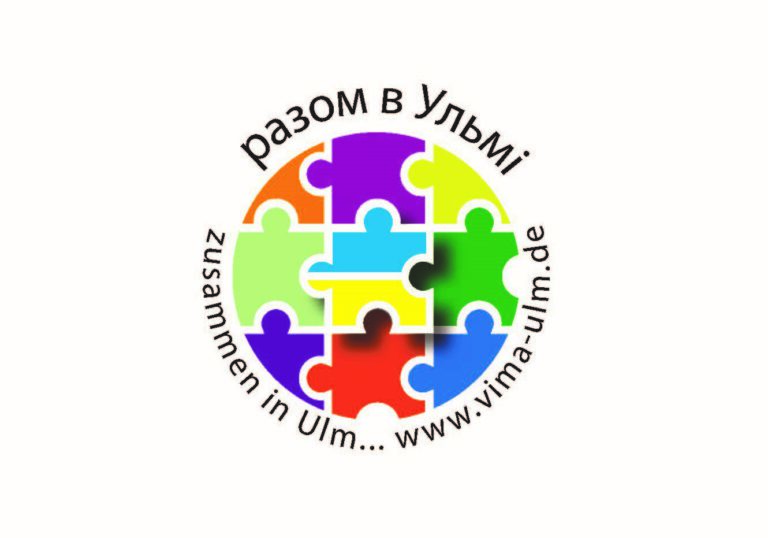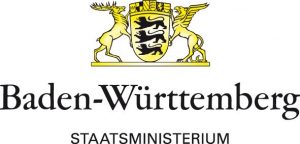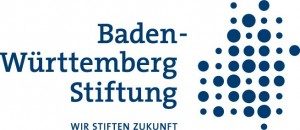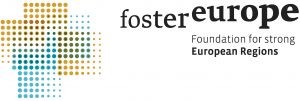Projects
Conferences
On July 8th, 2016, a Conference to the topic Tastes of Danube – Let’s Taste it took place in Ulm, Germany.Representatives of different partner groups met in the framework of the 10th International Danube Festival 2016 and presented their interim results of the project Tastes of Danube. The conference program included a number of plenary lectures, which provided scientific background as well as practical approach to the main themes in transnational comparison. Different methodical approaches were presented. Potential future projects in the areas of lifelong learning, cultural education, sustainable tourism, social entrepreneurship and other subjects were discussed in working groups.
We provided simultaneous translated English-German and German-English for the introduction and keynote lectures!
Frame of the Conference: The international project “Tastes of Danube: Bread. Wine. Herbs” where civil society organizations from 12 Danube Countries are participating. More about at: www.tastes-of-danube.eu
This event was organised by ILEU e.V. in cooperation with: Donaubüro Ulm/Neu-Ulm, Haus der Begegnung, Familienbildungsstätte Ulm, Volkshochschule Ulm, Zentrum für Allgemeine Wissenschaftliche Weiterbildung and Museum der Brotkultur Ulm.
Project partners
Brescia, October, 2015
Dr. Dušana Findeisen
Slovenian Third Age University, Vice President of DANET
Introduction
I have never been confortable with the denomination “older people”. Who are they, who are we talking about? Are they Italian researchers who are considered to be older workers already at the age of thirty-five, are they frail older people in institutional care, are they older people belonging to the dynamic time between work, retirement and old age (once called the third age) like myself, are they simply those who are above the average age of the population in a country (French Official Journal)?
In what way do the existing legal mechanisms and policies support, limit or hinder the contributory role of older people, of different groups of older people?
Finally as word of introduction, a question: “Are we afraid of ageing society? Are we really afraid of lower fertility and longevity in European countries, or are we afraid to admit that numerous social changes have brought also a new cultural organisation and role of ages and policies are to be amended or created accordingly”. These are the questions I would like to ask you and these are, and many others, the questions I am asking myself. I hope we might answer at least some of them, now and later on in a debate we intend to open.
European identity and (older) people’s active citizenship
This event is about European identity. Are we aware of our Eurropean identity? Patricularly we, older people, who have been coining our identities, personal and collective identities in different social, political and cultural contexts?
Knowing a little bit more about the European Union , its principles, history, current structural developments and mission, is as important as understanding the identity and the aims of your own country. The European Union and your country are closely related and you are European citizens as much as you are citizens of your own country. Within this framework , it is barely conceivable to think that European institutions are of no concern to European citizens, because they simply are! More than 70% of your national legislation comes from Europe, whether it concerns maximum working hours, the food you eat, the air you breathe or the age when you can retire. And do you know who decides about all these issues? It is not the anonymous bureaucrats in Brussels, but increasingly it is the European Parliament that makes decisions, the men and women whom you elect. Together with your ministers, heads of state or government they take decisions affecting your everyday life, whether you are young or old, producer or consumer, or living in the North, South, East or West of the Community . Often we complain that Europe is distant from its citizens – but is it?
How well do we know EU
Although based on the principles of the French Revolution – liberty, equality, fraternity – the European Union is not a revolutionary enterprise, but it is an intellectual enterprise as much as it is a practical reality
Over decades EU has become a framework for numerous enriching cultural, social, economic and other transactions among its member states. It established a common currency and it has provided for common security. Nevertheless, it has also failed several times and in several ways. Thus, Jacques Delors, Marcel Gauchet, Cohn Bendit and others are convinced that Europe has failed in imposing itself as a political force and it has failed in imposing itself in the processes of globalisation. Moreover, member states do not truly understand that “union is a force” and that union means community, giving, as well as ensuring receiving.
Nevertheless, in times of economic, financial, political and social crisis, the EU is believed to have a new chance, that is, the chance to tackle, democratically, issues of common and global interest, such as environmental issues, reversing the global trend of the market economy (Habermas, 2009, p.105) and demographic changes. (including ageing population, migrations, ageing workforce). These issues cannot be tackled in isolation, but on the contrary, they should become subject to large-scale public debate and real civil dialogue (Jacques Delors, idem).
Nowadays most European institutions and advisory bodies (European Commission, European Parliament, European Economic and Social Council) act accordingly. “The development of a European wide political public sphere – that is of a communicative network extending beyond the national borders and specialising in the relevant questions – is of central importance to the emergence of the European identity, says Habermas (2009, p.87). It is time for Europe and its institutions to become an agora , a truly deliberative space, including the representatives of all its citizens. In this spirit, I believe, we have gathered here in Brescia.
We thought it would be interesting to find out to what extent the relationship between European union and its older citizens has become a reality has been consolidated. To what extent older citizens identify with EU, to what extent they are aware of their European identity.
A research on the relationship between Europe and older citizens conducted by Slovenian Third Age University and its French partner organisation Old up from Paris, has yielded the following results: There were more than 500 respondents in each country.
The majority of the respondents report that Europe has changed their everyday life; political changes, (50,7 %), economic changes, (65,4 %), social changes (46,4 %) and cultural changes (70,9)
The majority of the respondents report that educational systems should be unique
(51,5 %) and cultures should be mixed up (72,3 %).
The majority of the respondents are of opinion that their co-citizens have no opinion of European citizenship (49,6 %).
The minority of the respondents report that they know associations related to Europe (36,3 %) et only some of them are their members (11,5 %).
Media and cultural exchanges would be the best vehicles consolidating the concept of European citizenship. Following are associations, forums, seminars, meetings and politicians.
The majority said they take part in European elections (78,3 %).
European identity and (older) people’s active citizenship
Since its establishment, the geographical shape of European Union has been changing. Its borders are now open, an open public space has been created. These developments influenced the existence of European society, have shaped a new political community of nations, and the emerging public space.
Individual rights are today secured on both, the European and global levels, and not only within nation states. Typically, social rights will be secured by the nation state, the rights in relation to the internal market will be guaranteed by the European Union and the UN will guarantee human rights. As a consequence of globalisation the idea of active citizenship needs to be developed on three levels: the national, European and global level.
Nevertheless, European identity is still an abstract concept, loosely formulated and loosely rooted in the social tissues, as indeed is the European active citizenship.
Are you sure you know what active citizenship is?
The idea of active citizenship is not new but can be traced back to ancient Greece. Greek citizenship was primarily built on the obligations, that each citizen had to the city (polis) government. To be an active citizen- one who took part in political life. was considered to be a moral duty. One was morally obliged to take an active part in common polis matters, if one wanted to be respected as a citizen and a human being.
In the 1700s there was a redrafting of the citizenship concept. Moral values like fraternity, freedom equality became the basis of active citizenship.
In the 19th c. the concept of legal state was formulated and citizens’ rights were secured within national states.
The citizens of Europe should ideally view themselves not only as British, German, and Italian, etc. but also as European citizens and indeed as citizens of the world to which they are connected with rights and obligations and work they do for community.
Demographic changes and the ageing society
The ageing society is one of the major current demographic changes. The other changes are shrinking populations, the ageing workforce and migrations.
When we think about ageing, we think about it principally as individual ageing, not as demographic ageing. Demographic ageing is a rather new phenomenon which first appeared in the second half of the 20th Century. Despite the progress achieved in all areas, human life is not any longer than in previous times, however the number of people over the age of 65 is increasing considerably and deaths are outnumbering births. Ever more people reach an advanced old age and at the same time the rate of fertility is reducing in some European regions due to a number of reasons, migrations being one of them.
Population is ageing and our societies are ageing. We live in an ageing society. Of course, on one hand this is a threat, but the percentage of older people in a society is a civilisation achievement (ie.in Afganistan there are only 3.5 % of people 65+ while in EU this is going to be a quarter of population).
But any change requires adaptation. This brings about the need to promote a cultural change in attitudes towards older people and old age, a change in the position of older people in society and the need to modify policies that determine the relationships between generations and that are supposed to meet the needs of different generations.
I have a tendency to believe that enhancing intergenerational solidarity (time, money, knowledge, culture, work) and cooperation is crucial in order to react constructively to today’s rapidly evolving social and demographic context.
Changes in the age structure of our populations will have a significant impact on the dynamics among and also within generations, and intergenerational solidarity and cooperation will need to be reinvented and sustained by appropriate policies. Expectations towards all generations should be high and ambitious and older people are no exception here.
Major older people’s issues
Older people’s needs and issues are addressed by different policies adopted on the basis of the European Treaties. However progressive they may want to be , they are often governed by a significant number of negative or positive stereotypes about older people. Older people are being approached mostly in terms of their age and not in terms of their involvement, potential, situation etc. What is important are their differences. The least important seems to be their age! However people in later life – according to some definitions this already begins at around the age of 45 – are a large group of extremely heterogeneous people.
The issues of older people are connected to the way of life that society allows or enables older people to have . Older people’s needs are social, emotional, cognitive and involve the need for sharing values.
There are many issues associated with older people:
- working longer under better conditions,
- preparing for volunteering whilst still in paid employment,
- working as a volunteer on an individual basis or in an organised way within public institutions and other organisations during retirement
- having a different position within families,
- taking part in lifelong learning and education,
- participating in local communities,
- participating in taking decisions in municipality matters such as education, health, culture,
- enjoying transport, social protection,
- alleviating poverty, etc.
All of these older people’s specific issues -plus others-are important. Not only pension shemes, and pension reforms.
The issues of older people are related to social fairness. More social fairness is needed not only on the distributive but also on the cultural and symbolic level. There are stereotypes about older people and old age, there is discrimination of older people, there is ageism, there is abuse of older people( financial, verbal, physical). Stereotypes do not affect only older people, they also affect everyone dealing with issues relating to older people, such as professionals, politicians, researchers etc. The best thing would be to ban these stereotypes – which is an easy thing to say but a very difficult thing to achieve.
In order to identify the issues of older people, one must first identify resources in society that are available to the generations in the middle, and secondly, a number of questions need to be asked :
- Do older people have equal access to accomodation, work, culture, health, education, transport, decision-making process?
- Do they have the right to go on working after their retirement without being penalized?
- Do older people have equal access to the media and do they appear in the Media, in public space?
- Are there discounts offered to older people solely on the basis of their age, pushing them in the end to appreciate being supported and slowly abandoning their right to play an equal role in public matters?
- The direction of local, national and EU policies regarding older people is often one that promotes weakness and dependency and this should be changed! EU treaties and common policies as well as numerous documents address older people’s issues.
Policies and legal mechanisms protecting older people’s rights
The year 2015 should be a landmark in social development: the UN Summit will adopt the post-2015 agenda, the European Social Charter will be 50 years old, and the EU will be devoting the entire year to development. And Slovenia together with other countries is acting towards an International Convention on The rights of Older Persons.
All this is happening against the backdrop of a rapidly changing global social structure. The global population is ageing, and increased life expectancy imposes a heavy burden on traditional public finances and sustainable health systems. At the same time, prolonged life expectancy and advances in technology enable older people to live fuller and more integrated lives. Nevertheless, the inequality gap between the rich and poor remains a significant impediment to social progress.
Older people seem to face multiple discrimination based on gender, age and ethnicity. Older people might be discriminated against within their own, very diverse, social group, or by other groups. Inequality and ‘ageism’ thus hinder progress in bridging the generational gap, in reforming the social contract, and in creating a model for long-term demographic stability and a supportive environment. There is a clear need to strengthen inter-generational links and foster human rights awareness and respect for the human rights of people of any age, potentially enabling greater solidarity between generations and thus an inclusive society.
The needs of older people are specific. Despite the fact that the human rights of older persons are in principle addressed in all human rights instruments, there is no coherent, holistic instrument that specifically addresses the rights of the elderly. One approach to addressing this issue that has been gaining momentum is the adoption of an international convention on the rights of older persons.
Older citizens and who represents them at the European level?
a/ The institutional level
The issues of older citizens are being addressed through the endeavours of various European Institutions, mainly by the European Commission and the European Parliament .
The European Commission (EC) The EC seeks public opinion on the issues through promoting public debate, peer reviews, consultations, thematic conferences etc., and prepares proposals in the field of social policy that concern older citizens (employment, social security, volunteering etc.).
Intergroup on Ageing This is a group within the European Parliament and unites MPs from different committees and sectors who are willing to discuss this particular issue. The Intergroup issues statements directed at the European Council and other EU institutions. The Intergroup is convinced that social protection and employment policies must be linked, that the EU has a key role to play in bringing about reform of pension systems in order to ensure decent pensions for all, giving people a fair share of society’s economic prosperity and not just preventing outright poverty. Countries need to provide secure, universal and fully adequate first pillar pensions . It is also necessary to adopt reforms to allow and encourage older people to keep working.
b/The NGO level
AGE (www.age-platform.org) , the European Older People’s Platform, is a European network of around 150 organisations working on behalf of people aged 50+, which directly represent over 28 million older people in Europe. AGE aims to voice and promote the interests of the 150 million people aged 50+ in the European Union and to raise awareness of the issues that concern them most. AGE also aims to give a voice to older and retired people in EU policy debates through the active participation of their representative organisations at EU, national, regional and local levels, so as to input into EU policy development. AGE’s work focuses on a wide range of policy areas that impact on older and retired people. These include issues of anti-discrimination, employment of older workers and active ageing, social protection, pension reforms, social inclusion, health, research, accessibility of public transport and of the built environment, lifelong learning and ICT.
There are other important NGO’s at this level, some of which specialise in the issues of older people, and some of them that deal with relevant issues as a part of their particular field of activity. Many also play an important international role in the field of research. Below is a selection of some of the more important and relevant NGOs:
- Care (Christian Action Research & Education for Europe): http://www.careforeurope.org/
- CEV (European Volunteer Centre): http://www.cev.be/
- C OFACE (Conf.d.ration des Organisations Familiales de l’Union Europ.enne): http://www.coface-eu.org/
- CCRE (Council of European Municipalities and Regions): http://www.ccre.org/
- EUROCADRES (Council of European Professional and Managerial Staff): http://www.eurocadres.org/
- Eurocarers (European Association Working for Carers): http://www.eurocarers.org/
- Euro Cities: http://www.eurocities.eu/main.php
- Euro Health Net: http://www.eurohealthnet.eu/
- European Association for Population Studies: http://www.eaps.nl/
- European Federation for Retirement Provision: http://www.efrp.org/
- European Association of Service Providers for Persons with Disabilities: http://www.easpd.eu/
- European University : http://www.euruni.edu/Scripts/Index.aspx?idz=2
- FAFCE (F.deration der Katholischen Familienverbande in Europa): http://www.family-eu.org/cms/index.phpEURAG (European Federation of Older Persons): http://www.easpd.eu/
- IPSE (Institut de la Protection Sociale Europ.enne) : http://www.idies.org/index.php?post/Linstitut-de-la-protection-sociale-europeenne-IPSE
- Youth Forum Jeunesse : http://www.youthforum.org/
Since 2000 social policy has occupied a much more prominent place in the overall agenda of the EU. After the adoption of the Lisbon Strategy by heads of state or government , a new goal was formulated which stated that economic and social policies should go hand in hand. As a result an ambitious social agenda was formulated, which sets out the social priorities – the Open Method of Coordination – which promotes stronger co-operation and co-ordination between member states on different social issues. This method applies to the areas of employment, social protection (pensions), social inclusion and education.
Conclusion
The ageing society simply requires many changes of the roles of older people and of the roles of other generations, including many changes in their mutual relationships. Above all, it requires active participation of all citizens within the member states of the European Union.
The policy discourse of dependance, old age stereotypes, prejudices and discrimination should be replaced by policies focusing on the contributory role of older people, older people as agents of change and development.
Intergenerational co-operation should be seen as a condition sine qua non for active ageing.
Older citizens should be more present in the shaping of European policies in line with Jaques Delors’ argument that in the future, “the European dynamics will be much more dependent on the contribution of the European (older) citizens than on the European institutions”. (Jacques Delors, idem).
For this purpose it is most important that European older citizens increase their knowledge about the European Union, its institutions and its achievements.
Moreover, better policies, experience and knowledge is/will be the basis of older people’s European identity awareness.
Literature and References
Balibar, E. (2003): We the People of Europe; reflections on transnational citizenship. Princeton: Princeton University Press.
Church, Clive H./Phinnemor, David (2009): The Penguin Guide to the European Treaties: From Rome to Maastricht,Amsterdam, Nice and Beyond. Penguin Reference Books.
Habermas, J. (2009): Europe The Faltering Project. Cambridge: Polity.
Intergenerational Solidarity for Cohesive and Sustainable Societes: outcomes of the Slovenian Presidency Conference Brdo. Slovenia, 28-29. April 2008 .
Moussis, N. (2007): Guide to European Policies. 13th edition. Rixensart. European Study Service Official Journal of the European Communities.
Project partners
The Conference took place within the framework of the 8th International Danube Festival in Ulm/Neu-Ulm and the European Year for Active Ageing and Solidarity between Generations from 8th to 10th of july 2012 in the congress center Edwin-Scharff-Haus Neu-Ulm. It is the 6th Conference of the European Network Learning in Later Life (LiLL)and the 1st Conference of the educational Network “Danube-Networkers”.
Project partners
Projects
ViMA stands for Virtual. Participate. Active! ViMA Danube is an open, multifunctional online platform that is supposed to become the digital meeting point of citizens in the Danube region.
The goal is to give the citizens, in all their diversity, the opportunity to exchange ideas with others online about common interests.
The focus is on people, for whom digital tools are provided to get to know people with similar interests, to share knowledge with others, or to make competencies and skills available to others.
The platform is the basis for meetings and cooperation virtually, in the presence or mixed form in the following areas
- search-offer function (culture, sports, travel, …)
- Interest groups (sewing, history, cooking, …)
and gives information about partner organizations’ events.
To exchange information specifically about Ulm and the surrounding area, visit vima-ulm.de.
Project partners
Erasmus + Project with intellectual output
Within the framework of the project IN-CULT (Living Intangible Culture), an interactive educational game will be created in cooperation between adult education organizations and senior learners from (South-) Eastern Europe (Bulgaria, Romania, Serbia) and (South-) Western Europe (Germany, Spain, Italy). This game will help to test and deepen one’s knowledge about the European intangible cultural heritage in the participating countries.
Through learning groups in the individual partner countries, the knowledge about their cultural treasures, dialects, traditions, etc. will be collected and made available in the online learning game IN-CULT. The project participants will be assisted to acquire new skills in blended learning, furthermore, they will be strengthened in their competencies by the participative approach. The participating seniors support the partner organizations in the development of a questionnaire on the topic “My cultural treasure”, conduct interviews with people, who contribute to the preservation of a specific cultural treasure, and can acquire knowledge in webinars, that support them in their project work.
With the IN-CULT interactive educational game, we aim to support adult educators to enhance their competencies, teaching methods, and tools by offering them a multilingual and universal learning tool for their work and a set of innovative activating methods. For the application of IN-CULT in the classroom, there will also be a download area for working materials and methods.
The aim of IN-CULT is to raise awareness and disseminate knowledge about the importance and diversity of Europe’s cultural heritage – contributing to a common European future in peace and mutual respect.
More here:
https://in-cult-game.eu/
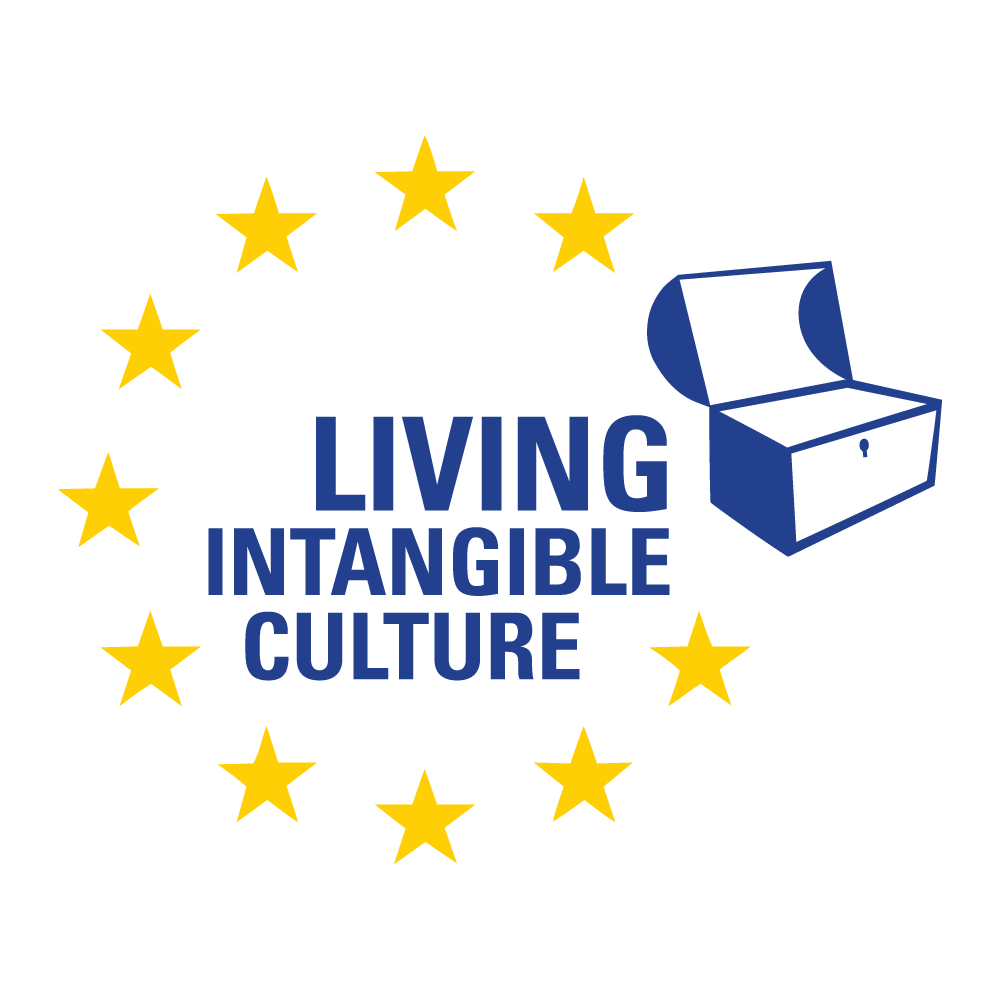
Project partners
Due to the current spread of the coronavirus, measures have been taken that seemed almost unthinkable some time ago, such as restrictions on social life and the closing of borders in Europe and worldwide. Older people in particular are threatened by health problems and most often experience social isolation.
The current situation is blocking many things, but not our sense of community and our commitment to peaceful, solitary, and common coexistence in Europe.
Within the framework of the pilot project DANECT, people of all ages, but especially seniors, from the Danube region come together to connect despite the social isolation in times of Corona crisis. With the help of online video meetings, they share their interests, emotions, but also competencies. To participate, you need a PC or laptop with a camera or microphone, alternatively a tablet or a smartphone and an internet connection.
Project partners
Duration: 2/2020- 12/2020
The project is a pilot project to develop creative methods in dialogue between people of different ages from Germany and Bulgaria. Its focus are central societal problems, such as demographic and technical changes and migration. The project is deliberately designed to be integrative and makes it clear that the active social participation of all is necessary in order to solve questions of the future.
The project received funding from the Baden-Württemberg Stiftung and Generationenstiftung of the Sparkasse Ulm.
Project partners
Web: www.codanec.eu
Duration: October 2019 – September 2021
Preserving cultural heritage in art and culture is not just a matter of museums. Everyday culture has many facets and is connected to the people who live it.
The project is about finding out what kind of regional or national cultural treasures are for individual groups or individuals worth to preserve and give to younger people for the future, how they maintain the selected cultural assets, how they pass them on, what changes they have undergone in the course of history, what transformations are conceivable.
The CODANEC project aims to make visible the knowledge and skills of older people from the Danube countries who contribute to the preservation of material and immaterial cultural assets. At the same time, the project is intended to build a bridge to the younger generation, who will contribute their own ideas on the subject of cultural assets.
Through intergenerational cooperation and the exchange of groups from different Danube countries, the interaction with traditions, customs and values is to be shaped in a new way.
The use of new media should contribute to visualisation and at the same time strengthen the media literacy of the participants. A photo competition and mini-projects will be announced in order to activate many people from the Danube countries, from all age groups, ethnic groups and social classes. Qualification training in photography and filming of short video clips will be provided. The results will be presented at public events. Moreover, there will be international partnership meetings and opportunities for exchange, e.g. within the framework of the Danube Festival Ulm/Neu-Ulm.
A intergenerational and transnational conference on the topic, a photo exhibition and the Danube-Bridge-Breakfast will be organised.
The CODANEC project is supported by the State Ministry of Baden-Württemberg.
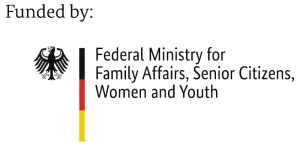
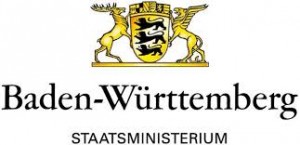
Project partners
Web: www.bbe-toolbox.eu
The project’s objective is the development of an online Method-Toolbox (https://bbe-toolbox.eu/), which can be used in European education programs and actions in the context of adult and especially older adult education. Central task will be the development of criteria for the analysis of projects and methods with the focus on good practices in the areas of fostering critical thinking, European consciousness and solidarity and the reduction of prejudices.
The Method-Toolbox should help to improve and extend the supply of high quality learning opportunities tailored to the needs of different target groups and individual learners.
Partner organizations from Germany, Italy, Slovenia, Croatia, Romania, Bulgaria are members of the educational networks Danube-Networkers, the international association DANET e.V., the FEDERUNI Network of Italian Universities of the Third Age and in Bulgaria the Platform Agora. All partners are experienced in national and international work with different target groups, especially older learners.
Collected will be methods of learning and transnational European cooperation, which will then be analyzed and adapted for work with the target groups of this project, especially older people, women, people with low education, and for learning settings (formal, non-formal, informal) in general adult education in Europe.
There will be four partner meetings and also cooperation via online tools. Taken into consideration will be various learning arrangements, target groups and differences in work conditions, culture, languages, as well as the educational and social framework of the respective countries and the applicability of the methods in the respective countries, focusing the cooperation of education providers from West, middle and Southeast Europe.
Please find further information on the project website: https://bbe-toolbox.eu/
The project is funded by the Erasmus+ Programme of the European Union.
Project partners
Web: http://bread-connects.tastes-of-danube.eu/
The successful Project „Tastes of Danube“ will be continued – start of the project „Tastes of Danube: Bread Connects“ in spring 2017
The very successful, intergenerational and intercultural Danube Project „Tastes of Danube: Bread. Wine. Herbs“ will be continued. The follow-up project „Tastes of Danube-Bread Connects“ is based on the findings and experiences in the project „Tastes of Danube-Bread.Wine.Herbs“.
At the heart of the project „Tastes of Danube: Bread Connects“ is the promotion of awareness raising for the common cultural roots in the Danube Region and in Europe and the strengthening of the Danube community by working on the subject of bread. Through various activities, citizens of all age groups, ethnic groups and social situations will be invited to experience bread as a common immaterial cultural heritage, which is reflected in many facets of local level. Through doing things together at local and transnational level, the aim is to demonstrate the possibilities offered by the cultural heritage of intergenerational and intercultural dialogue, social cohesion and economic development in the Danube Region and in Europe.
More information will follow soon.
The project is financed by:
Project partners
Web: www.odda.eu
Background: The pilot project Open Doors for Danube Countries for All (ODDA) builds on experiences from the previous work and projects of the network Danube Networkers. Mutual knowledge and understanding amongst people in the Danube countries and positive climate between European neighbours is one of the prerequisites to the successful implementation of the Danube Strategy and its European ideas. The project should help to reduce prejudices and fears, to introduce and establish new role behaviours and forms of civic engagement. Experiences from previous cross-national projects have shown that many people are reserved when it comes to programs that include international meetings or travel to the West or the East. This applies especially to people with low education, but also to people, who have large knowledge about their own culture. This reserve comes from the lack of knowledge of languages – the other national languages or English, the lack of experience with the cultures of the Danube neighbours and the resulting fear of getting into difficult situations.
The reason for this is the long division of the West and the East Europe and the different social systems. The consequences of this division are especially marked in the transdanubian sphere. Cross-national meetings foster motivation to find out more about the ‘world’ of the other, lead to questions and experience of alternatives for dealing with new situations and foster the feeling for common European democratic values.
The reason for this is the long East-West divide in Europe and the different social systems.
The project is financed by:
Project partners
Web: http://bread-wine-herbs.tastes-of-danube.eu/
As a follow-up project of “The Wanted Danube” the “Danube-Networkers” organization in Ulm starts a new project with their partners from all Danube countries in October 2015. “Tastes of Danube: Bread, Wine, Herbs” is the name of the project which welcomes civil society organizations, schools, single persons and groups in Germany and all other Danube countries as active participants. From now on, every interested group, institution or person from the Danube Region is invited to present their ideas for project activities and to actively take part.
Transnational activities will be designed and carried out circling around bread, wine, and herbs as traditional groceries and luxury foods which are equally common in all countries along the Danube river. The different activities will offer a chance to not only get knowledge about the use and meaning of these foods nowadays but to research about their social and cultural history throughout the countries. Memories and experiences from individual and professional life will fill the subject with life, along with teamed creative planning and baking, or, for example, discussing possibilities of food sharing.
The project is supported by Staatsministerium Baden-Württemberg, Baden-Württemberg Stiftung, Ulmer Bürger Stiftung, Sparkasse Ulm, Heidehof Stiftung and others
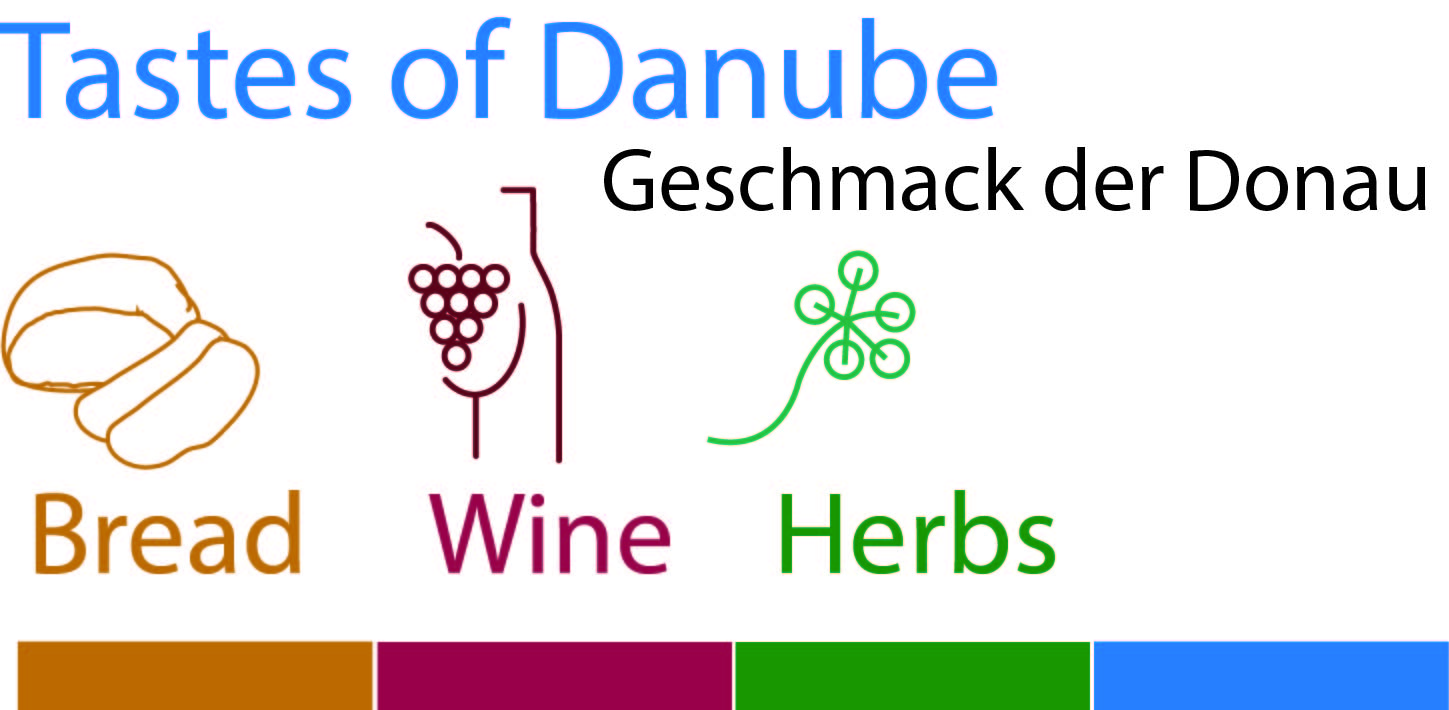
Project partners
The project “The wanted Danube” , mainly financed by the Baden-Württemberg Stiftung, was very successful not only in Germany but also in other Danube countries who participated in it. As the Danube-Networkers from Ulm did saw a great potential to continue with project activities and ensure the sustainability based on hilarious products – wool Water-Carpets and friendship strip, they started a new round of the part project, named “The Danube moves us”. Since July 2014 they did made a lot of action in Ulm region to promote the idea of the whole project and to offer the river carped pieces for collecting money to support social and pedagogical projects in the South-East Danube countries.
At the end of December 2014 the amount of donations has run up to almost 12.000 Euros. In July 2015 it had been 15.000 Euros. In October 2014 two educational institutions in small villages in Serbia and Croatia, which were damaged by the latest Danube flood catastrophe, were restored with the support from the “Wanted Danube” donations. One donation was given for one social project in Mariakemend, Hungary, and another donation for a pedagogical project to school Pildesti, Romania. Other project will be supported 2016.
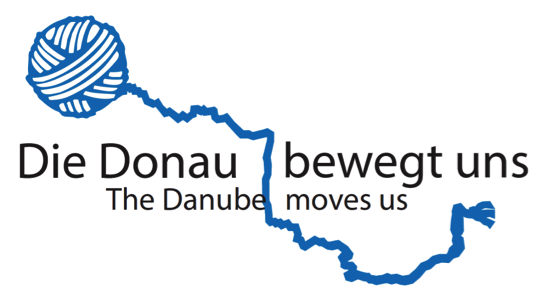
Project partners
The successful project “The Wanted Danube” demonstrated how mutual knowledge and first steps of mutual friendship between people from all over the Danube Area can develop from a hand-crocheted friendship ribbon. The project was initiated in November 2013 by the Ulm-based educational network “Danube-Networkers ” in cooperation with partner organizations from eight different countries along the Danube river. The presentation of the “common Danube-River carpet” on the Cathedral Place in Ulm during the International Danube Festival Ulm/Neu-Ulm on July 13, 2014 included representatives of all involved institutions along the Danube and was a big public success.
Designed as a parallel to the European Union’s Danube Area Strategy, which involves politics and economy, the goal of “The Wanted Danube” was to address the people on a personal level. They should view it as a positive challenge to get involved with each other and to improve their mutual knowledge, especially people from Western and South Eastern Europe as well as the people from different ethnicities in various Danube countries.
The output of the project is unique. More than 6.000 people from 8 Danube countries (Germany, Austria, Slovakia, Hungary, Croatia, Serbia, Romania and Bulgaria took an active part, seniors as well as pupils and students. 1.457,99 km of friendship ribbon were crocheted, 3.649 “river-piece carpets” were hand-crafted by the participants, along with many cultural and educational side events. A lot of engagement and interest in the Danube Area was demonstrated. The Danube Area became topic of many school classes. Wide-spread media coverage turned public interest to the project.
The project evaluation showed high outcomes on the individual level as well as on the group and institutional level. The “river carpets” and many hand crafted wool products, such as bags, blankets, cushions and more made from the friendship ribbon after the July 2014 presentation, are given away for donations which are used for social purposes and Danube-focused educational activities developed together with the partners from the Danube countries. The Ulm Danube-Networkers had been very engaged to promote the project “The wanted Danube” after the main event, which took place at the 13th of July 2014 during the International Danube Festival Ulm/Neu-Ulm. Five Danube-Networker-Days had been organized in Germany, Serbia and Bulgaria in 2015 with big participation from the citizens. In Ulm the Danube-Networkers did made a lot of action to get donations for the “river carpets”.
In October 2015 the project “The wanted Danube” got the Citizen Price 2015 from the European Parliament and the “Europa-Lilie für Bürgerschaftliches Engagement” (Europe lily for the citizens engagement) by the Europaunion Deutschland (European Union Germany).
The project was supported by various sponsors, mainly by Baden-Württemberg Stiftung, Germany.
Contact: Carmen Stadelhofer, chairwoman ILEU e.V. and DANET e.V.
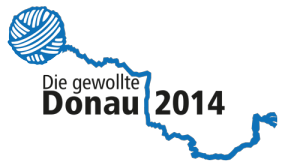
Project partners
Between March and April 2013, the Donaubüro Ulm/Neu-Ulm in cooperation with the Centre for General Scientific Continuing Education (ZAWiW) of Ulm University and other scientific education and civil society institutions from Serbia, Romania and Bulgaria implements the project “Changes of Perspectives – Intercultural Exchange between Generations und Cultures along the Danube”.
Three lectures prepared by scientists in 14-day intervals will be held live to an audience in the respective locations and transmitted over the Internet in an online-lecture series to the other project locations. After the lecture structured discussions will take place between the participants from all four countries. The lectures will be held in English and will be translated into the project partners` native languages.
20.3.2013 Tourism in the Danube Region: Economic factor or meetings of people? Danko Cosic, Tourismus Experte (Donaukompetenzzentrum Belgrad)
10.04.2013 What does demographic change mean for the Danube Region? (Ruse, Bulgaria)
24.04.2013 Old and young between tradition and modernity (Craiova, Rumänien)
Start of the lectures at 4 pm, Location in Ulm: Multimedia-Room N27, Ulm University
The aim of the project is to work out using the new media different perspectives between the Danube countries and the different generations to determine similarities and differences and to seek new solutions to social problems from different point of views. The online-lecture series contributes a better understanding between the people in the Danube region.
Between the online lectures local meetings will be held to the participant groups, which serve the preparation and follow up of the lectures. The short presentations in form of statements will be transmitted in advance to the other partner organizations, so the participants can prepare their questions and statements in English. The well structured discussions will be lead by selected moderators.
An Internet platform will present the lectures as video podcasts together with relevant materials. An Internet forum will provide the opportunity to elaborate on the subjects in intergenerational and cross-national discussions.
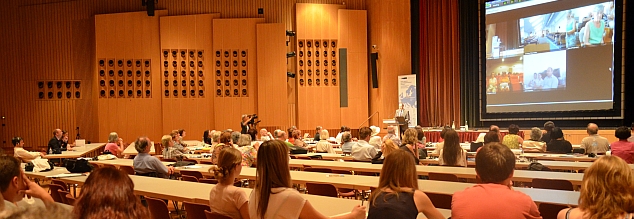
Project partners
On the 14th and 15th of March 2013, representatives from education organizations in Bulgaria, Croatia, Romania, Serbia, Slovakia, Slovenia and Germany had met at Ulm University for a kick-off meeting of a research project „Older Adults’ Lifelong Learning and ICT Use in the Danube Region”.
The research project aims at collecting data on Lifelong Learning (LLL) and use of Information and Communication Technologies (ICT) by older adults (especially in learning activities) in the Danube Region. It will take into account general conditions and existing structures in the partner countries. The results of the study are to enable the partners to draw up concrete recommendations for future projects and encourage networking. The partners involved in the study will have the opportunity of applying for a joint European project together, which will be based on the outcomes of the study.
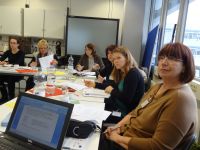
Project partners
The European Learningpartnership “Personal TownTours”, financed by the European Commission, Programme Liefelong Learning, should lead to the development of cultural tours that can be offered to national as well as international guests of the participating organisations and other interested parties in the project partners’ cities. Throughs cross-national exchanges, the projects’ learners gain know-how in the linguistic, cultural and historical backgrounds of other project members’ living environment. Activities: The members of the participating groups (seniors as well as younger adults) in the partners’ locations prepare under self-selected thematic focus 3-5 personalized 60-90 minute Personal TownTours and present them to members of partner groups from other countries as well as to other local older and younger people and bring their town closer to them.
Project partners
Between December 2011 and July 2012, the Donabüro Ulm/Neu-Ulm in cooperation with scientific education and civil society institutions from five countries (Germany, Austria, Hungary, Serbia, Romania) implements the “Media Project Old and Young” (Danube-Networkers Lectures, DALEC) with the thematic focus “Values and Paths along the Danube”. The project’s subject corresponds to this year’s topic of the city of Ulm and the motto of the Danube Festival 2012: “New spirit along the Danube”. The key tasks are assigned to the Centre for General Scientific Continuing Education of Ulm University (in short ZAWIW).
Project partners
The mobile exhibition „Danube-Networkers on Tour” is an event meant to accompany a learning partnership “Danube- Stories” which is funded by the European Commission for a time period between August 2011 and July 2013 and in which learning groups from seven Danube countries (Germany; Austria; Hungary; Croatia; Romania; Bulgaria and Serbia as silent partner) are participating.
The exhibition opened during the European symposium of the ZAWiW “Active Ageing and intergenerational learning” within the framework of the International Danube Festival in Ulm/ Neu-Ulm in July 2012 and moves in the time period September 2012 to June 2013 along the Danube till Ruse. The exhibition is supposed to reach larger audience through public events at different locations along the river Danube (Ulm, Wilhering/Linz, Vienna, Budapest, Belgrad, Vukovar, Timisoara, and Ruse).
The project is financed by the Baden-Württemberg Stiftung.
Project partners
The Grundtvig Learning Partnership Danube Stories (August 2011 – July 2013) focuses on the development and application of innovative approaches to oral history work with older people (55+) in the Danube Region. These approaches should encourage creative expression of thoughts and feelings in subject areas that have to do with the participants’ living environment, history and cultural identity. They should provide people of different nationalities, education backgrounds, gender, with opportunities as well as tools for documenting and communicating their memories and experiences and make these available to others.
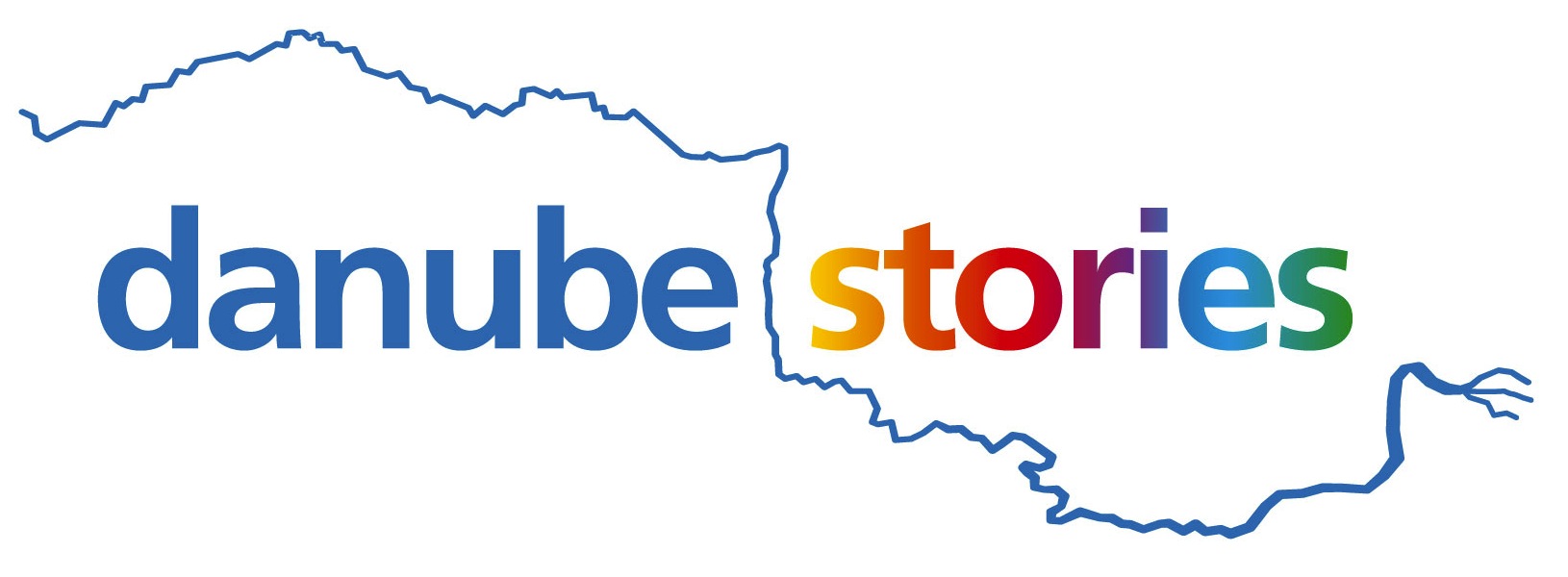
Project partners
Through new forms of activating lifelong learning the project aims at empowering older citizens for participation in the development of the Danube Region so that they understand the chances and the risks in the current developments, articulate their interests and define together the possibilities for action and for future perspectives of their Region.
Actions include education via lectures on selected subjects that concern the future of the Danube Region, subsequent discussion of these subjects in national face-to face and virtual citizens’ panels, and a transnational face-to-face citizen’s panel in Croatia in june 2011. The project will be closed in november by a seminar and conference meeting with European Parlamentariens in Strasbourg.

Project partners
In this project, following the analysis and discussion of good practices of academically-oriented continuing education for older adults, concepts for education programs in own national and institutional contexts and situations will be developed and tested by the partners at Universities and NGOs in Bulgaria, Romania and Serbia.
The education programs in the area of politics, social and cultural studies should foster understanding of political themes and social transformation in the context of the Danube Strategy of the European Commission, strengthen preparedness for political and social cooperation and participation and encourage older people to commit themselves to others and to society in their own region and in Europe.
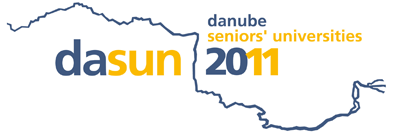
Project partners
In today’s society it is no longer unusual for women to become over 80 years old. These women look back on long periods of dedication to professional and domestic activities. What do we know about women aged 70+ that shape their lives with outstanding courage and social engagement? Which decisive turning-points and challenges like illness, loss of partners or children financial constraints did they have to master? Which professional, social and other activities did they take up and how do they perceive their aging? These questions will be asked by groups of women 50+, reflecting at the same time on their own life experiences.

Project partners
In the framework of the Grundtvig-Program “Senior Volunteering Project” (SVP) an first exchange along the Danube is realised through the co-operation of ZAWiW/ViLE e.V. and the University of the Third Age at the University Bratislava, in which four senior volunteers are spending three weeks in the partner country in order to participate in voluntary initiative.
Project partners
The goal of the learning partnership “Danube Networkers” was to create through joint activities of older adults from the neighbouring states along the river Danube an intercultural network of older adults and to make them into networkers in the way of the European idea. The learning partnership made civil participation and determination processes possible, it opened them to this target group. The partnership acted in a parallel way to the contacts created in the area of economy and culture (Danube offices) along the Danube and provided foundations for a larger European “Danube Networkers” project. In the sense of activating seniors’education, seniors’groups developed in the participating organisations worked together on jointly selected themes about the river Danube.
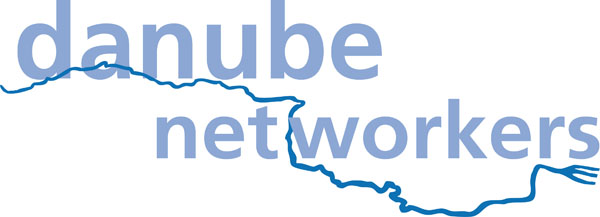
Project partners
From the 7th to the 12th of July 2008, in the context of the International Danube Festival Ulm, a seminar with the title “Home country – Danube country” took place in which seniors from the various countries along the Danube had met for the first time. The seminar had been organised by the “Zentrum für Allgemeine Wissenschaftliche Weiterbildung (ZAWiW) der Universität Ulm” and the seniors’ working group Europakontakte at ZAWiW in cooperation with the Association ViLE e.V. and other cooperation partners.
The goal of the seminar was to develop basis for a long-term thematic cooperation between seniors’ groups along the Danube in the way of a social network. Each delegation consisted of one person in charge in adult education and three seniors with facilitator functions.
Project partners
Seminars/Courses
ILEU.e.V., ZAWIW Ulm University, DANET e.V., Landeszentrale für politische Bildung Baden-Württemberg
Creating Bridges for Europe.
Qualification training, 24.7.2017, 18.00 -28. 7.2017, 13.00
in the frame of the project “Open Doors for Danube Countries for All (ODDA)”
Strengthening social cohesion in the Danube countries and in Europe through education and international understanding has been the objective of the educational Network Danube-Networkers since it has been founded in 2008. Europe is for us a common house under which roof a multitude of people of different national, ethnic, social, religious or cultural origins should meet and live peacefully together.
Upon this background, the participants of this Workshop, including participants of the Project ODDA, will create low-threshold methods and materials.
Communication will be initiated though use of key words and sentences, gestures, images, music, dance, etc. and this also in situations when there is no common language knowledge. Confidence will be developed in situations of everyday life (what to do and not in greetings, eating, other daily situations).
Short description: Short Description DANET Workshop Bad Urach 2017
Program Structure: Program Bad Urach 2017 en
Result of the seminar: At this link you can find the results of our seminar
Finanziell unterstützt durch/sponsored by:
Project partners
We are pleased to announce a first Qualification Training aimed at strengthening the civil society and collaboration in the Danube region by capacity building. This training, will take place 8th-12th December 2014 in Bad Urach and is financially supported by the Baden-Württemberg Stiftung and other sponsors. Training language will be English, but some translation support in other languages will be given, if necessary. Besides learning aims of training, we hope to bring together the representatives of different civil society organisations as well as individuals interested in new partnerships and establishment of a long-standing collaboration within the European projects and funds.
The aims of this training are:
- to enhance the intercultural, intergenerational exchange as well as to establish a long-standing partnership between different non-profit organisations and institutions.
- to support and strengthen the civil society organisations along the Danube in regard to applying for EU funds and establishing long standing partnerships
- to strengthen the DANET network as well as the Danube Civil Society Forum, WG 3 and support their work.
The aforementioned aims should be reached through bringing different civil society organisations and/or individuals together, giving them the opportunity to learn each others´ profile, objectives, and ensuring a useful exchange of knowledge and experience among them.
Project partners
The new information and communication technologies, especially the Internet, allow innovative, interactive methods in obtaining information, in communication and in virtual cooperation. Internet and virtual learning allow new forms of learner-focused European cooperation. Often used in the educational context is the combination of virtual and face-to-face learning – blended learning.
This course will take place on January 23th-27th, 2012 and in March 2012.
For further information visit the course website.
Target Group: Employees in adult education
Course no. DE-2012-1181-002 (Session 001 / SESSION ID: 4181) in the Grundtvig course database
Please apply at your National Agency for a scholarship until September 16th, 2011 the latest!
Project partners
The main goal of this workshop on November 27th – December 4th, 2011 is to make the use of the Internet and new media in seniors’ education perceptible on the level of the learners. The participants will gain an insight into the use of new media, especially virtual, interactive tools (such as Skype, Video conferencing, blogs, and virtual interaction). Furthermore, the areas of use will be illustrated by good practice examples on location and in European co-operations.
Target Group: Adult learners 50+

